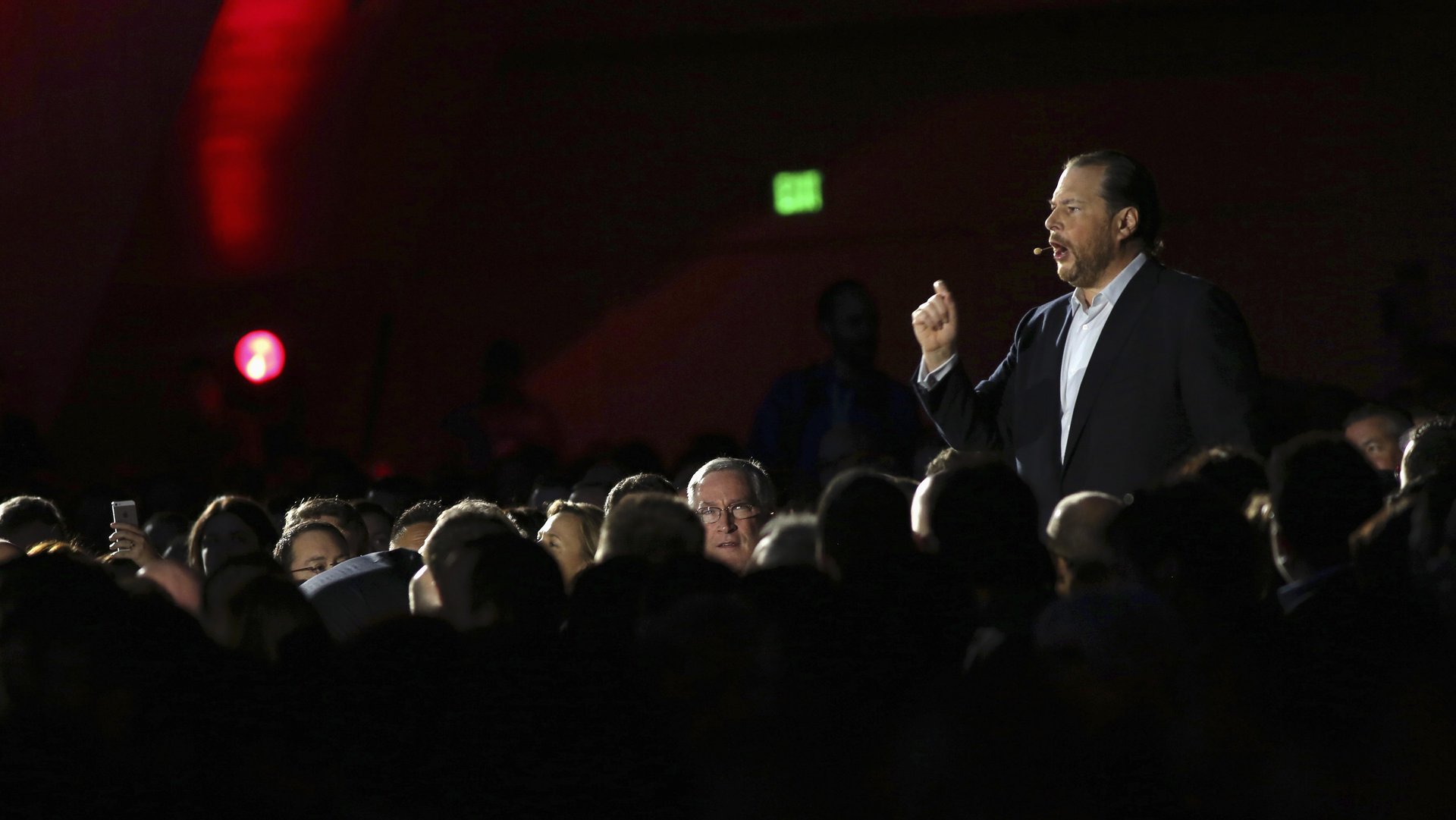The list of the most admired companies rarely changes. That makes entrants like Salesforce even more impressive
Every year Fortune magazine rolls out its list of the world’s 50 most admired companies.


Every year Fortune magazine rolls out its list of the world’s 50 most admired companies.
As to be expected, there’s some flux from year to year—Wells Fargo, 25th last year, fell off the list altogether in the wake of its fake account scandal. Likewise, Samsung, 35th in 2016, is nowhere to be found amid flammable batteries and corruption allegations.
Yet the list is surprisingly consistent, with many of the same companies not just reappearing from last year, but from a decade ago.
Six companies from 2007’s top 10 are on this year’s top 10, and three of the remaining companies—FedEx, Johnson & Johnson and Proctor & Gamble—made this year’s top 20 (the exception, Toyota, fell to 34th, no doubt the lingering impact of its own scandals).
Some of that consistency is due to methodology: The top 50 is drawn from a survey of 3,800 industry executives and analysts who vote on a list of companies derived from the results of last year’s most admired companies. Reputations linger, and absent a major negative event, voters have little reason to dislodge the incumbents.
In most cases, it’s hard to argue that these companies’ reputations aren’t deserved. Apple is a cultural icon, a leader in innovation and a Wall Street juggernaut. Amazon has reinvented commerce. Disney made big bets with its purchases of Lucas Film and Marvel which have paid off handsomely.
Which makes the presence of new companies like Netflix (14th) and Salesforce.com (20th) all the more impressive. While they’re of roughly the same vintage as Facebook, Google and Amazon—all were founded between 1994 and 2004—they had a longer and slower road to success. They’ve managed to crack Fortune’s top 20, and enter the pantheon of American business, despite steep odds.
That doesn’t mean they’ll be there forever. Fortune’s inaugural list of most admired companies in 1983 includes Eastman Kodak, Gillette and McDonnell Douglas, victims of technological disruption or industry consolidation. It’s hard to make it to the top, and it takes work to stay there.